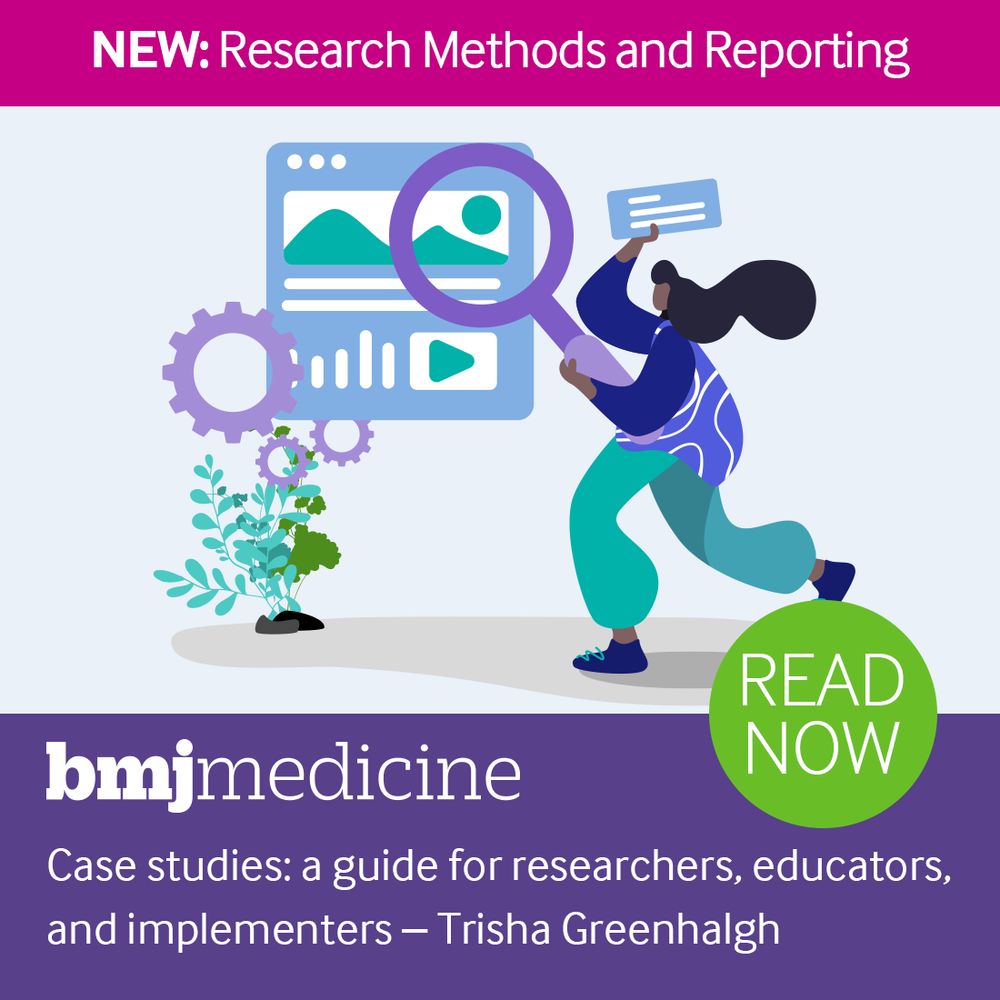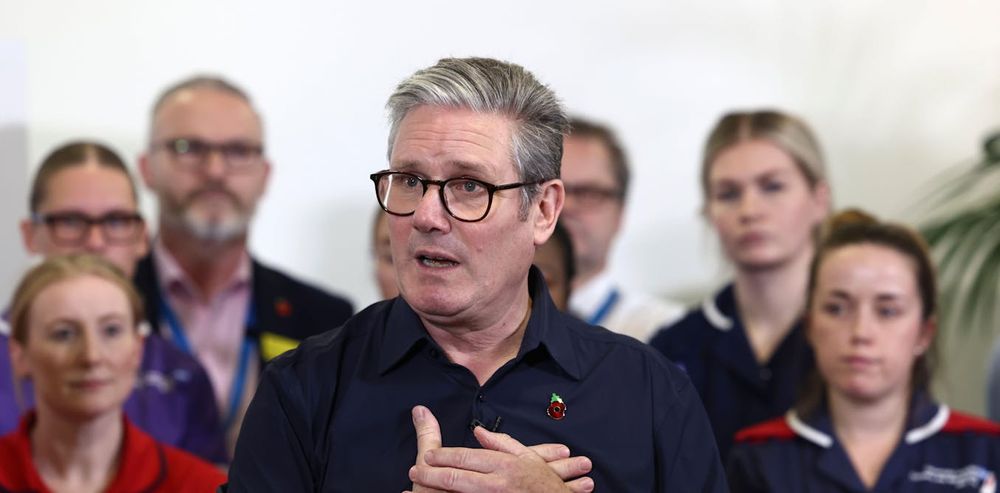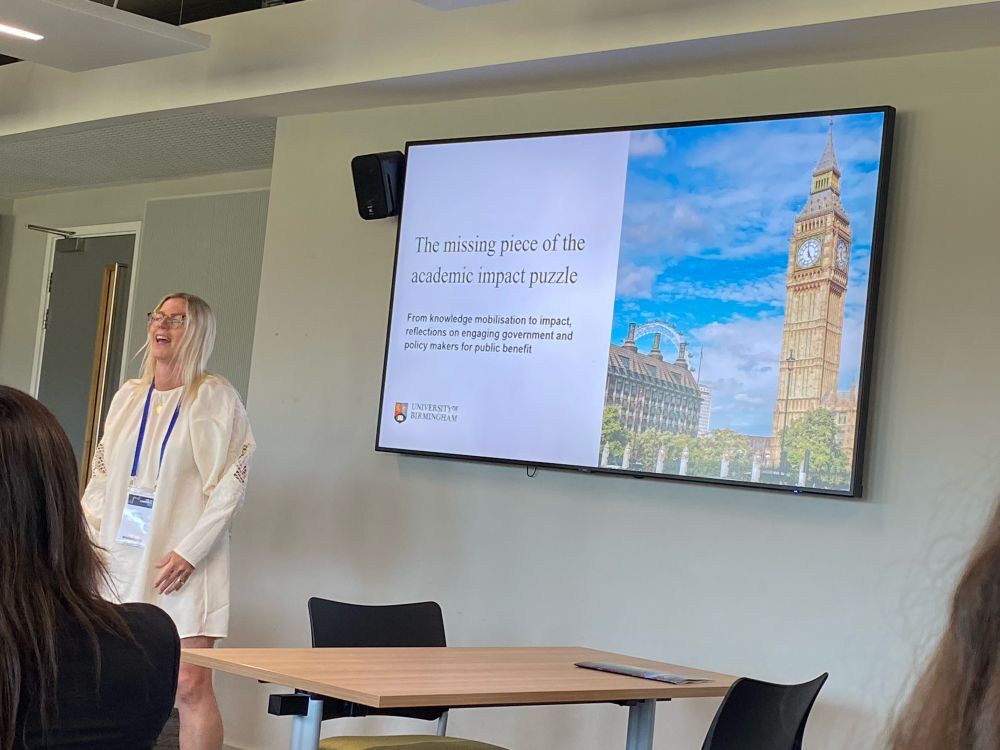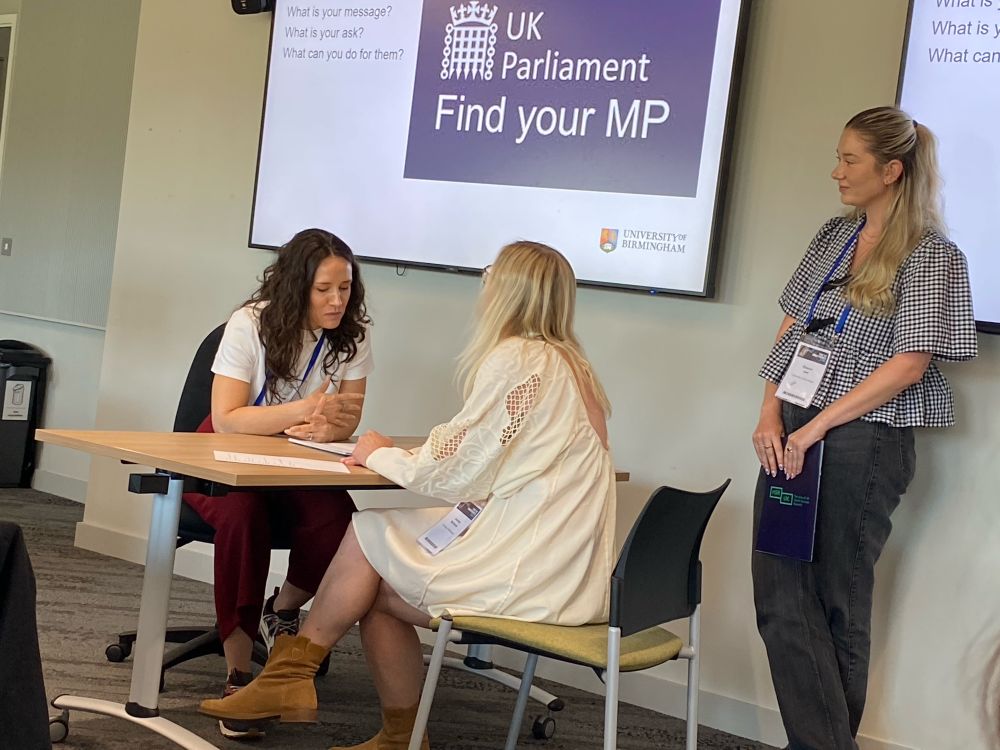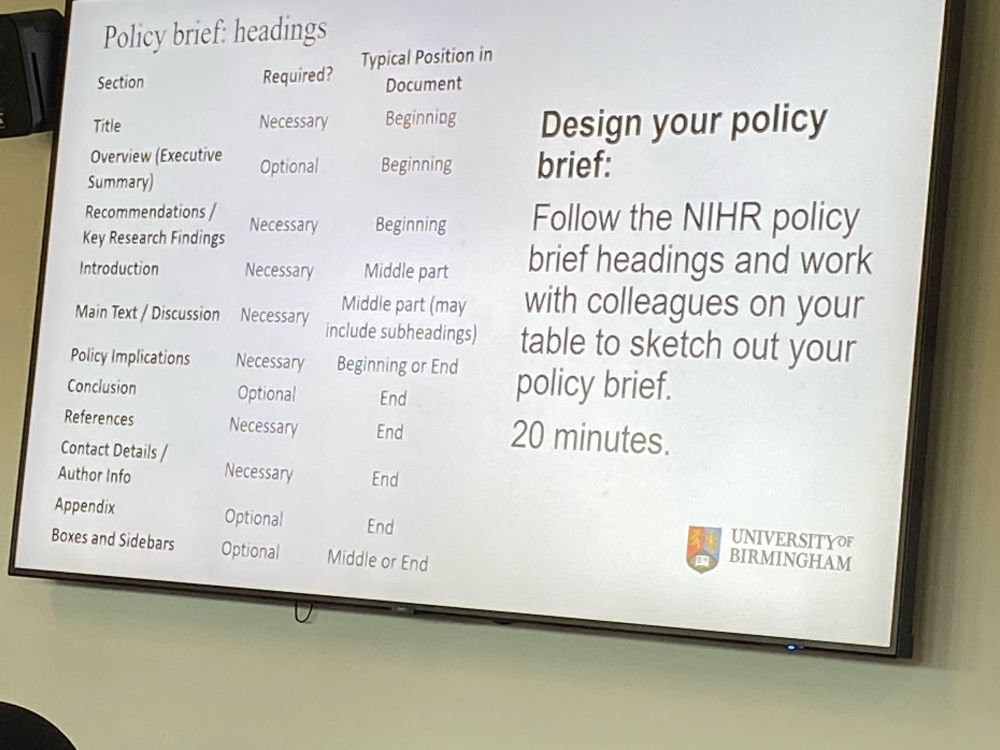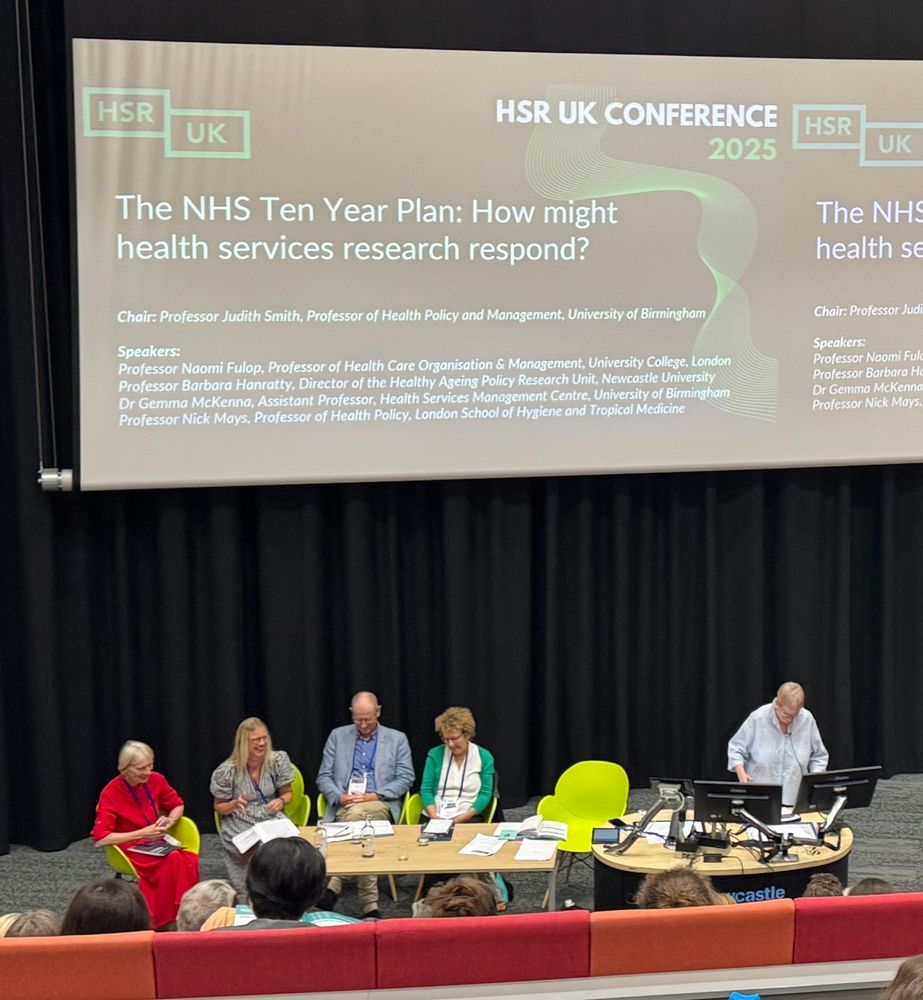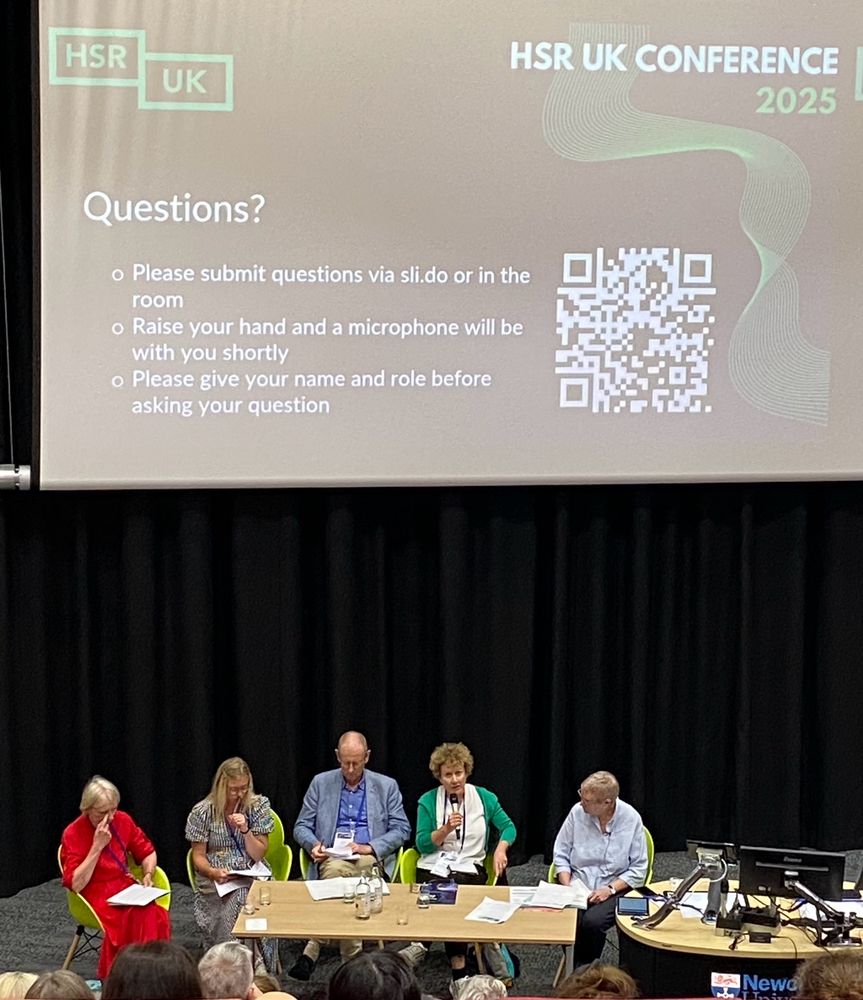Sonia Dalkin
@soniadalkin.bsky.social
100 followers
84 following
19 posts
Professor in Applied Health and Social Care Research at Northumbria University, with interests in complex interventions and methodological development. Co-Director of the NIHR IDEAS National Evaluation Team.
Posts
Media
Videos
Starter Packs
Reposted by Sonia Dalkin
Reposted by Sonia Dalkin
Sonia Dalkin
@soniadalkin.bsky.social
· Jul 3
Reposted by Sonia Dalkin
Reposted by Sonia Dalkin
Reposted by Sonia Dalkin
Sonia Dalkin
@soniadalkin.bsky.social
· Jul 2
Reposted by Sonia Dalkin
Reposted by Sonia Dalkin
Reposted by Sonia Dalkin
Sonia Dalkin
@soniadalkin.bsky.social
· Mar 11
IDEAS-NET
@northumbriaideas.bsky.social
· Feb 25
Materials from The Future of Evaluation in Health and Social Care Symposium - IDEAS
Authors: Professor Angela Bate, Professor Sonia Dalkin & Dr. Jason Scott Contents Provocation Plenaries Breakout Sessions & Poster Submissions Photography Summary Photography: Del Stevyn Provocation Plenaries Over the course of three days in early January 14th-16th 2025, we were privileged to welcome esteemed speakers across a range of disciplines to share provocation plenaries on the past, present and future of evaluation in health and social care. We were joined by over 100 attendees from academic, health service and policy backgrounds, at all career stages, representing 9 countries. Our speakers did as asked and provoked the audience to critically reflect on all aspects of evaluation. Copies of all the presentations are linked below. Be sure to cite them if you reference any material contained within them: Dr Kathryn Skivington & Professor Laurence Moore (University of Glasgow) – “Strength through diversity? A journey through the MRC/NIHR Framework.” Professor Ray Pawson (University of Leeds) – “Farewell to Evaluation.” Professor Dave Byrne (Durham University) – “Understanding causes and effects as system states: the implications for evaluation.” Dr Emily Warren (London School of Hygiene & Tropical Medicine) – “Are realist RCTs possible? Reflections from the INCLUSIVE trial.” Dr Rachel Meacock (University of Manchester) – “Reconciling the micro and macro impacts of health and care interventions.” Professor Carl May (London School of Hygiene & Tropical Medicine) & Professor Tracy Finch (Northumbria University) – “What are we evaluating when we do process evaluations?” Professor Mike Kelly (University of Cambridge) – “Why is Changing Health Inequalities So Difficult?” Photography: Jamie Taylor Breakout Sessions & Poster Submissions Plenaries were complemented by a series of breakout sessions and posters presentations. Special shout out to our poster presentation award winners: Dr Andrew Fletcher, Dr Carsten Hinrichsen, Lauren Lawson and Dr Petra Makela for their exceptional contributions in advancing evaluation in health and social care, through methods innovation and impactful dissemination. Dr Meghan Kumar (Northumbria University) and Dr Ferdinand Mukumbang (University of Washington) – “Future of Evaluation in Global Health.” Professor Sonia Dalkin and Professor Angela Bate (Northumbria University) – “Future of Evaluation: Where have we been and where are we going?” Dr Manbinder Sidhu and Dr Sophie Spitters (University of Birmingham) – “Rethinking Rapid Evaluation: Challenges in Scoping and Decision-Making. Professor Darren Flynn (Northumbria University), Professor Joanne Gray (Northumbria University), Dr Alan Bagnall (Consultant Interventional Cardiologist) and I-Lin Hall (Strategic Head of Digital and Programmes (NENC) – “Managing big data sets and data linkage.” Dr Jason Scott (Northumbria University), Professor Brian Castellani (Durham University), Dr Efundem Agboraw (London School of Hygiene and Tropical Medicine), Dr Morgan Beeson (Newcastle University) – “Managing complexity in Evaluation.” Dr Peter Van der Graaf and Dr Sebastian Potthoff (Northumbria University) – “Mobilising knowledge from complex intervention evaluations into policy and practice: how to deal with lazy academics and stubborn policymakers.” Photography: Del Stevyn Photography We wanted to take a moment to acknowledge the incredible work of Del Stevyn, our event photographer for The Future of Evaluation in Health and Social Care symposium. Del’s keen eye and thoughtful approach have resulted in a fantastic collection of images that capture the energy, engagement, and key moments of the event. As we share these images, we recognise how they vividly illustrate the connections made, the ideas exchanged, and the spirit of collaboration that defined the symposium. View the images here. Summary As promised, the symposium allowed attendees to: Hear from a range of speakers across a variety and disciplines and meet participants across these disciplines to break down those silos and communicate with one another; Spend time and space to think through current conceptual challenges in evaluation and gain different perspectives on live problems; Connect evaluators from academia and consultancy with service providers, local and national policy makers, and the voluntary, community, and social enterprise sector (VCSE).
hosting2.northumbria.ac.uk






